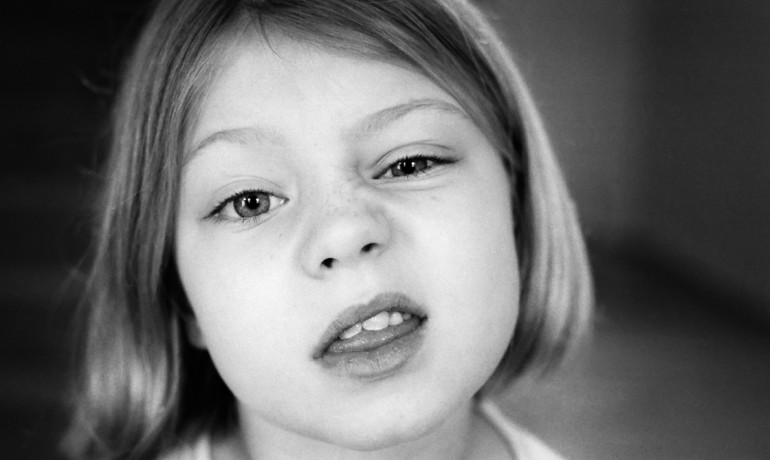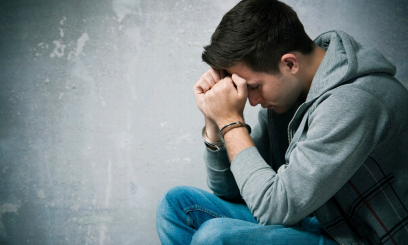Here’s How 8-year-olds Around The World Feel About Their Lives

Children in Algeria and Ethiopia are most likely to like going to school. (Credit: Rod Waddington/Flickr)
UNIVERSITY OF YORK
Posted by David Garner-York on
A new study of 8-year-old children in 16 countries shows that most are happy with lives—but some, most notably in Ethiopia, South Korea, and England—report having low self-esteem.
 The Children’s Worlds study, coordinated in England by the Social Policy Research Unit (SPRU) at the University of York, asked children about all key aspects of their lives including their family and home life, friendships, money and possessions, school life, local area, time use, personal well-being, views on children’s rights, and their overall happiness.
The Children’s Worlds study, coordinated in England by the Social Policy Research Unit (SPRU) at the University of York, asked children about all key aspects of their lives including their family and home life, friendships, money and possessions, school life, local area, time use, personal well-being, views on children’s rights, and their overall happiness.
“CHILDREN KNOW BETTER THAN ANYONE ELSE ABOUT THEIR LIVES AND THAT ANY EFFORT TO IMPROVE IT NEEDS TO BE INCLUSIVE OF THEIR VOICE.”
England ranks no higher than eighth out of 16 countries for any of the survey’s happiness measures. However, the report identifies, in relative terms, the most positive and negative aspects of life within each country. The three aspects with the most positive relative scores in England are happiness with people lived with (usually family), health, and safety.
“This project is groundbreaking. This report presents, for the first time, 8-year-old children’s own perspectives on their lives and well-being,” says Simon Sommer, head of research at the Jacobs Foundation which funded the work.
Some of the key findings from the report include:
MONEY
Over a third of the children surveyed say that they “often” or “always” worry about how much money their family has. The levels of worry is highest (over 30 percent of children saying that they “always’ worry) in Israel, Colombia, Spain, and Nepal. In South Korea and Germany the figure is less than 10 percent.
SAFETY
Most children say that they feel totally safe at home, at school, and in their neighborhood. However 4 percent of children don’t agree at all that they feel safe at home, 4 percent don’t agree that they feel safe at school, and 9 percent don’t agree that they feel safe when out and about in their neighborhood. While these percentages are small, they still add up to large numbers of children in each country.
SCHOOL
Most children (62 percent) totally agree they like going to school. This is much higher than in surveys of 10-year-olds (52 percent) and 12-year-olds (42 percent). Children in Algeria and Ethiopia are most likely to like going to school and children in Germany, South Korea, and England the least likely. In some countries—including Israel and six European countries—girls are much more positive about school than boys. In other countries such as Nepal and Ethiopia there was no difference between girls and boys.

Children in Colombia (73 percent) are the most likely to know about children’s rights. (Credit: Maria Grazia Montagnari/Flickr)
BULLIES
Many of the children say that, in the last month, they have been left out by classmates (41 percent) and that they had been hit by other children at school (48 percent). These experiences are more common among children aged eight than in the older two age groups in the survey. The percentage of children who have been hit is highest in Estonia, England, and Germany and lowest in South Korea. The percentage who have been left out is highest in England and Romania and lowest in South Korea and Ethiopia.
CHILDREN’S RIGHTS
Almost half of the children (46 percent) say that they know about children’s rights. This is lower than for older children aged 10 and 12 (58 percent). Children in Colombia (73 percent) are the most likely to know about children’s rights, and in Turkey, Ethiopia, Romania, and Norway over half of children also answered “yes’ to this question.
“For the first time ever we are able to hear from almost 20,000 eight-year-old children from 16 countries what they do, feel, and want,” says Professor Asher Ben-Arieh, one of the study’s principal investigators and co-chair of the International Society of Child Indicators. “This remarkable achievement teaches us first and foremost that children know better than anyone else about their lives and that any effort to improve it needs to be inclusive of their voice.”
“There are some quite troubling messages from England and the picture is quite similar to what we found with older age groups,” says Gwyther Rees. “Children are happy at home and with friends but less happy at school where there seems to be an issue around bullying and being left out.”
The Children’s Worlds project continues to grow with further countries including Indonesia, Finland, and Italy joining the second wave of the survey. The third wave will start in September 2017 with initial findings to be published in early 2019.
Source: University of York













